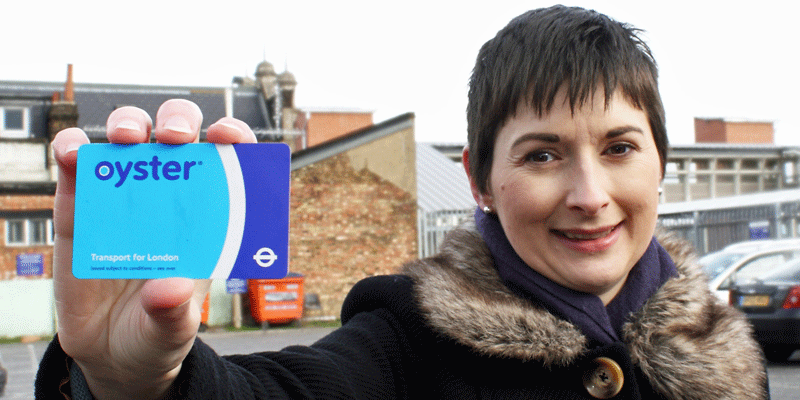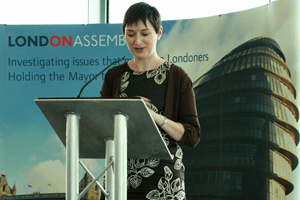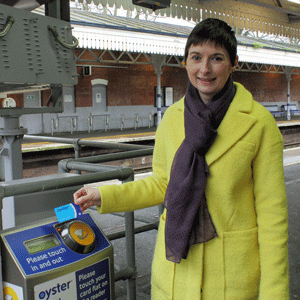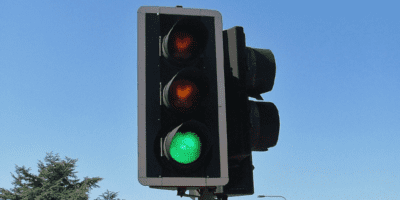Caroline Pidgeon is a Liberal Democrat London Assembly Member and Chair of the London Assembly’s Transport Committee, having been elected to the London Assembly in May 2008. She worked in local government and the health service for over a decade before becoming a full time politician, and was awarded an MBE in the 2013 New Year Honours List for public and political service. Caroline moved to London after graduating from the University of Wales Aberystwyth in 1994.

“…In the last few years women have been at the forefront of holding to account those who run Transport for London (TfL) and other aspects of our transport network in the capital…”
Ensuring women’s voices are heard in the male dominated world of transport
When most people think of the transport industry their immediate image is of a very male dominated world. From train drivers and leaders of their unions through to the senior management of train companies, the common factor is male dominance.
The same also applies to the world of engineers. Everyone has of course heard of Brunel, however how many people can think of a famous female civil engineer?
Yet as a London Assembly Member and Chair of the London Assembly Transport Committee I have never accepted that anything relating to transport should be treated as a male preserve. For me, transport policy is about meeting the needs of passengers, motorists, cyclists and pedestrians. As women need to travel around just as much as men, and indeed often rely on public transport far more than men, it is obvious to me that their voice should be clearly heard.
In the last few years women have been at the forefront of holding to account those who run Transport for London (TfL) and other aspects of our transport network in the capital.
The world as seen from the viewpoint of women, as well as men
Since 2008 I have been either Chair or Deputy Chair of the London Assembly Transport Committee. Until 2016 my chairing of the committee alternated each year with Val Shawcross. Although Val is no longer with us on the London Assembly I am delighted that she moved on to become the Deputy Mayor for transport.
The record of women chairing the London Assembly Transport Committee also precedes my arrival at City Hall with Baroness Lynne Featherstone chairing the committee for a number of years in the early days of the Greater London Authority’s existence.
I think having a relatively high proportion of female London Assembly Members (10 out of 25, which is a much better record than Parliament) and having women chairing the London Assembly Transport Committee for a large number of years has made a real difference. The world as seen from the viewpoint of women, as much as from men, has increasingly been brought home to TfL and to some other transport providers.
Championing gender equality for transport users
Some practical examples where changes have been made or influenced through our work include:
- Starting to get changes to ticketing policies that support people who work part time or who are regular home workers. For far too long the ticketing packages offering the lowest ticket prices have been for people who use monthly or annual season tickets. This means that the people who have obtained the cheapest travel are people who work full time, a group over represented by men, with part time workers (over represented by women)
losing out. We still have a long way to secure a part time travelcard and season ticket, but an important step in recognising the needs of part time workers was the decision made two years ago to reduce the daily Oyster Pay as You Go cap. The more recent introduction of the Hopper bus and tram ticket is a further ticket change which will benefit many women. It is a policy I have championed for the last decade.
- Encouraging TfL to talk to buggy manufacturers and make it easier for people to identify small, lightweight, foldable and safe buggies that can fit comfortably through the aisle and share the priority space on buses.
- Making travelling safer. One significant improvement in train services in London has been the development of the London Overground, where the awarding of train franchises and the specification of the contract is set by TfL and not the Department for Transport. In London we benefit from London Overground stations being constantly staffed from the first to last train. It is a model of train franchising that the London Assembly – across the political divide – is unanimous in wishing to see extended to many more train lines.
Supporting female staff at Transport for London
I think the scrutiny role of the London Assembly has also helped to shine a light on some staffing issues at Transport for London (TfL).
Looked at from an historic point of view TfL (and its predecessor bodies running transport in London) has a mixed record in terms of diversity.
TfL recently celebrated 100 Years of Women in Transport, marking the significant moment in history in 1914 when 100,000 women entered the transport industry to take on many responsibilities held by men who had been enlisted for military service. As an example of the changes that took place back then, when Maida Vale station opened in June 1915, as part of the Bakerloo Line extension, it was entirely staffed by women. However after the First World War some of these changes went into reverse.
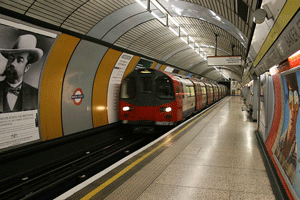
Fast forward to today and the situation is improving but still remains somewhat mixed. Women make up 47% of the UK workforce, and 44% of London’s workforce. Women do still remain under represented in the UK transport industry where they make up only 18% of transport workers. In London only one of the train operating companies is led by a woman, and it is zero in relation to the bus operating companies.
To be fair the situation is much better at TfL. Its’s annual workforce survey for 2014/15 shows 23.3% of the total workforce are women, including 24.4% of senior managers.
Changes are still taking place. I can only congratulate London’s new Mayor on how he has shaken up TfL’s Board and ensured it is far more representative. The previous TfL Board included 13 men and just four women. By contrast TfL’s new Board will be 57% female.
And even in that historic male dominated profession of Tube drivers some dramatic changes are now taking place. In relation to the Night Tube, the number of women drivers now stands at 21%.
We have no grounds for complacency, but these are all welcome developments.
Transport service and policy: Too important to be left just to men
The transport industry is a large employer and the need to recruit from the widest range of talent has never been more important. No school girl or young woman should feel they are excluded from considering a career in any sector or profession within the transport industry.
The running of transport services and the development of transport policy is simply too important to be left just to men.
https://www.london.gov.uk/people/assembly/caroline-pidgeon
https://twitter.com/CarolinePidgeon
https://www.facebook.com/carolinepidgeon

